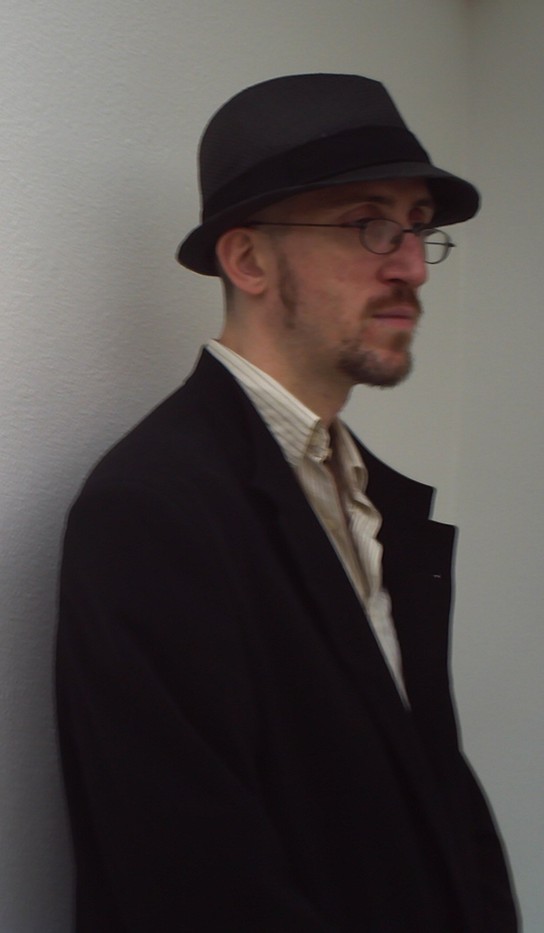what is your name?
Paul Grimsley
how would you describe what you do?
I write fiction and poetry, and I also have projects like Intoviews which are designed to help writers and artists and help spread the word throughout the community.
what are you currently working on?
I am working on various different poetry projects, flash fiction collections, longer short stories for collections, several novels, some non-fiction books, and illustrating some of the books i have which are in the editing stages.
what has had the greatest influence on your work?
When I first started getting interested in writing I was reading Ray Bradbury, Aldous Huxley and chasing down all the works of the Beat Generation, so I feel that there were the twin influences of experimentation and story-telling pushing and pulling on me. Also I love music and movies and have tried to recreate the visceral rush of some of those mediums in my work. I draw a lot on the everyday as well, as do most writers – reparsing things that happen to me into fiction or poetry.
what is the greatest misconception about you or your work?
The fact that I am prolific causes a lot of people to adopt the opinion that I am somehow disconnected emotionally from my work and that I am just churning them out with little investment in them, which is not true.
what do you see as the main strengths and weaknesses of the medium you work in?
On a shoestring budget a writer can mount the most amazing productions because he uses the reader’s own imagination to embellish the things he is writing and that has limitless potential.
I think weaknesses generally reside with the writer more than the medium, but maybe the lack of instancy can be a problem for some reason – the idea that they have to work for the prize in a book can be off-putting to them.
how has technology impacted upon the work you do?
The biggest influence it has had is to open up all kinds of possibilities that would never have been there for me in the small town I lived in.
The format necessary to make a text work on a screen has also, I think had some impact upon the length and form some of my fiction projects have taken. Poetry makes the transition to screen a lot more smoothly I think.
what’s the greatest piece of advice you would like to pass on?
Not too allow your instincts and natural feeling for where a piece of work should go to be coloured by the advice and so-called good sense of others; only you really know what you want to say.
where can we find you online?
http://headspaceunique.org/ is the best place to find out about all my latest exploits; it serves as the informational hub for my projects.
what are you reading at the moment?
Oryx and Crake by Margaret Atwood and Accelerando by Charles Stross.
what are you listening to at the moment?
Today I am having a Blue October day, a group which my wife introduced me to.
anything else we should know?
Well, regarding this site, I know a few people have wondered about the set questions. The idea is that they are designed to spotlight the creative person in question and to background the interviewer, who is of secondary importance to the whole affair. I think it works – if you look at the variety of ways in which people answer the questions … the interviewees create what the interview is, make it unique.
Anyone interested in being interviewed or with suggestions for interview subjects should shoot me an email at [email protected].
